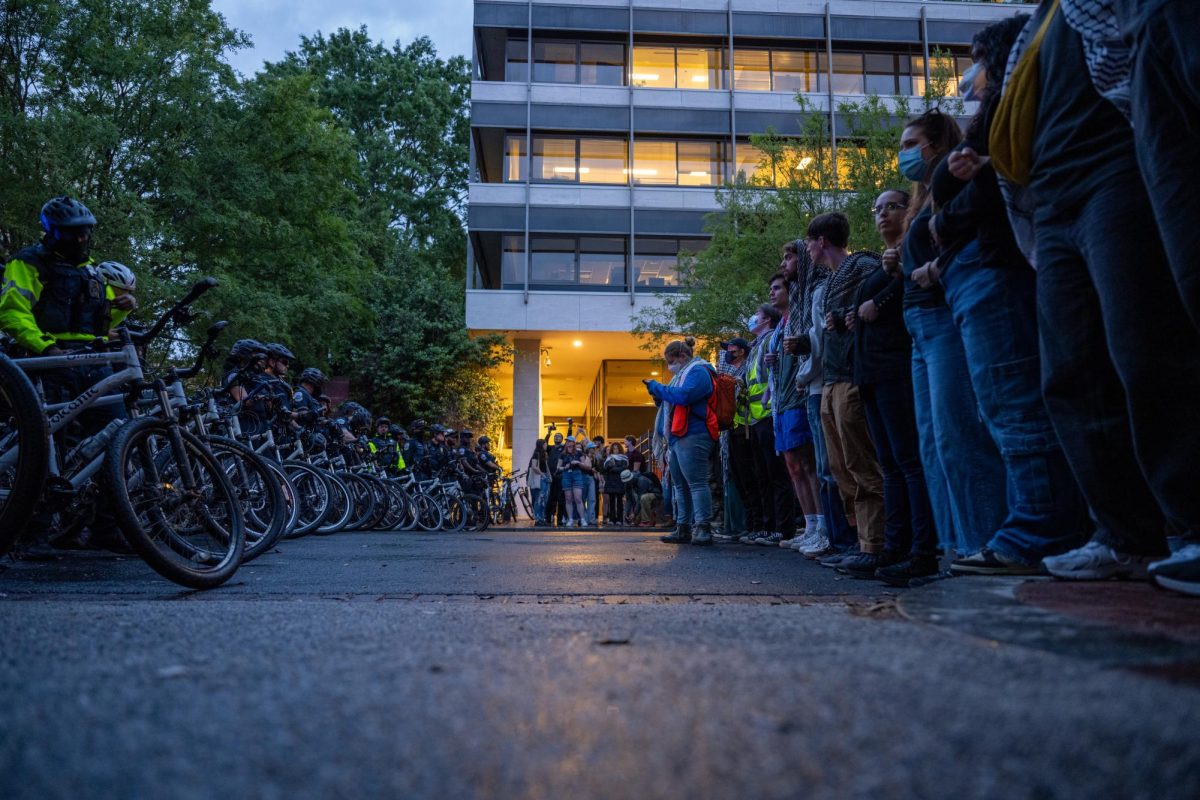Following a string of highly publicized violent actions on or around campus, a student was allegedly assaulted in an alley near the State Plaza Hotel at 21st and E streets the Friday before spring break. University Police did notify students and staff about the incident through a blast e-mail. The alleged attack, however, raises serious questions about safety on campus, questions that must be answered by UPD and University officials.
On March 8, Chief of University Police Dolores Stafford announced a new notification policy in a Hatchet letter to the editor (“UPD changing crime notifications to the community,” p. 4). Unlike past alerts, which were posted on paper in campus buildings, the department now sends out a blast e-mail regarding any crime alert to members of the GW community. UPD will also post the crime alerts in dorms on orange paper, which will not be used for any other notification.
This policy is a positive step forward from largely unnoticed notifications in buildings, many of which blended in with a sea of other flyers or were merely ripped down by students. E-mails regarding campus crime are highly visible to anyone who checks his or her e-mail, and they can reach members of the community who may not pass by prominent posting locations.
The blast e-mail regarding the March 9 assault was one of the first sent out under the new policy, but this apparent crime is surely not the first to be noticed by students this semester. In February, a female student reported that an unidentified man assaulted her in an Academic Center classroom shortly after 9 a.m.
In a school year that has apparently had more than its fair share of criminal activity, e-mail crime alerts are important to students, staff and faculty. It is important to remember, however, that these alerts make campus crime even more visible and will no doubt fuel perceptions that campus safety is increasingly in jeopardy.
For a University located in the heart of a major metropolitan area, reports of criminal activity should not be a complete shock. It is incumbent on UPD and administrators, however, to evaluate the driving forces behind what appears to be an increasingly dangerous campus and the effect they will have on the GW community.
The assault near the State Plaza Hotel occurred in the early morning hours, during which crime is more expected to occur. The Academic Center attack occurred in broad daylight, however, raising questions about the security of our campus. UPD and other University officials should investigate whether current patrols and security policies are adequate to mitigate criminal activity on campus.
On another level, police and administrators will need to fight perceptions of a more dangerous GW. While the blast e-mails are a step in the right direction, open office hours at UPD headquarters or information sessions within residence halls around campus may be effective ways to educate the community about recent crime events.
Furthermore, the increased notification and apparent increased crime may be noticed by prospective students and parents of current or potential undergraduates. Increased outreach may be necessary to limit damage to GW’s reputation, damage that could especially result from an event such as the theft that occurred in Townhouse Row during winter break.
Ultimately, an urban area is susceptible to crime, but it is GW’s job to take extra steps when such activity increases and reach out to members of the community who may be alarmed by the trend. While the blast e-mail notifications are a good start, a follow-up policy to thoroughly investigate the driving forces behind campus crime and keep students, staff and faculty educated is needed.





